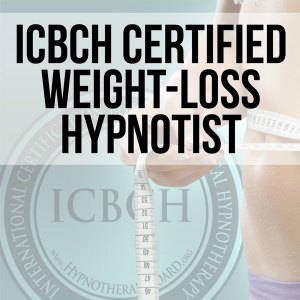Aside from politics, religion or conspiracy theory, nothing creates as much passion and debate on social media as the debate about which diet is “correct”. And hypnotists frequently ask me what dietary recommendations they should make for hypnosis clients. And the right answer seems frustrating to hypnotists. The right answer is: We are neither food scientists, dieticians or nutritionists. We should not be making dietary recommendations.
The reason this answer seems so dissatisfactory to hypnotists is, that without making specific recommendations, how do we create effective suggestions? After all, don’t clients need to be on a diet to lose weight? The answer to that is no. In fact, lifestyle and medical healing produce long term results, not dieting or simply more exercise. And by trying to find the right “diet” or hypnotic gimmick, we are actually doing hypnosis the lazy way rather than the effective way.
 No matter what diets you have studied or believe in (the passion on this subject rises to the level of what religious group is going to get you to heaven or which political club will make the world a place of unicorns and sunshine once again), the best answer is to practice hypnosis – and resist the temptation to take the easy way and become an amateur dietitian.
No matter what diets you have studied or believe in (the passion on this subject rises to the level of what religious group is going to get you to heaven or which political club will make the world a place of unicorns and sunshine once again), the best answer is to practice hypnosis – and resist the temptation to take the easy way and become an amateur dietitian.
So what works then? What does a hypnotist do that is different? Hypnotists change the mind, behavior and preferences, but it does so not by teaching a diet or prescribing an exercise regime, but by operating at a higher level. This higher-level works with a client whose subconscious mind will intuitively make changes when we can help the conscious mind from impeding our client’s success by overcoming the critical factor.
Clients are not stupid. They know what will work for them. But they know this only at a subconscious level, not at a conscious level. To many advertising messages, family traditions, medical and other issues have clouded the conscious action taking process. They need our help believing in themselves and creating sticktoitiveness and creating self-worth. No matter what diet you have faith in, we know certain things are absolutely true:
- We know eating too many Twinkies won’t help a person lose weight.
- We know that some foods have better calories than other foods (nutrient density)
- We know that a calorie is an absolute measure, not the subject of debate or opinion, and that 3500 calories = about 1 pound.
- We know that eating is a subconscious action
We also know some absolute truths about hypnosis. We know that hypnosis changes physiology. We know that hypnosis can create awareness, we know that hypnosis can break neurological association between emotion, behavior and cognition.
The approaches we should be using in hypnosis should come from listening to the client’s subconscious mind. In the clear reality of an unencumbered subconscious mind they will reveal us the best path for their success. This means we as hypnotists, need to know how to listen to the subconscious mind, and hypnotists must know how to structure suggestion that include emotional, physical and even metaphysical techniques, because each client will be different.
As hypnotists we need to know how to reframe hunger pain, and to use techniques like virtual bariatric hypnosis as well as techniques based in mindfulness, trauma resolution and behavioral modification. As hypnotists we do not need a one-size fits all approach, but rather a comprehensive approach that is holistic and encompassing. That only comes from taking a comprehensive training that covers more than just dieting and exercise, but also the many tools available to us as professional hypnotists.
What do you need to learn to be a more complete weight loss hypnotist? Take the comprehensive ICBCH Weight Loss Hypnosis Certification course and discover a comprehensive approach rather than a one-size-fits all diet of hypnotic “protocol”.
Click here to register for the ICBCH Certification

